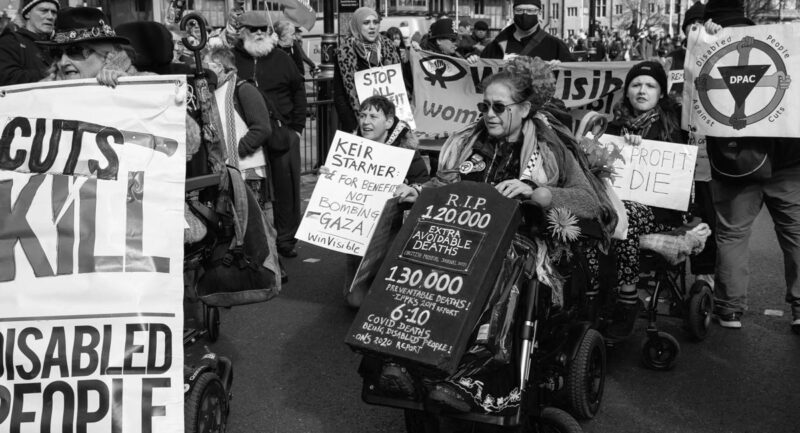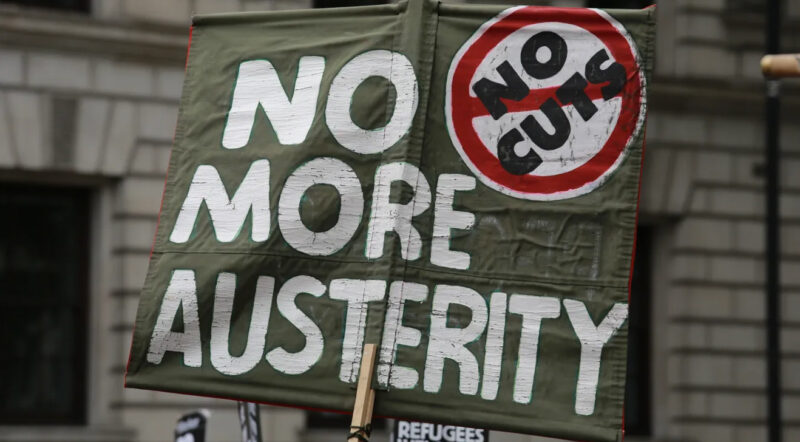Spanish miners and farm workers take on bosses and the state
Spain is the new Greece, the latest country to fall victim to the bond markets and Eurozone bailout conditions. With its banks weighed down by €184 billion in toxic debts and in a double-dip recession since last Autumn, in June Prime Minister Mariano Rajoy had to go cap in hand to Eurozone finance ministers for a €100 bank bailout. Andy Yorke writes.

The price – as usual – was an austerity package of €65 billion with VAT tax hikes, cuts to unemployment benefits, slashed pay for public sector workers and attacks on union rights. And things are poised to get worse. Spain’s regional governments are bankrupt too. Catalonia, Murcia, and Valencia are begging for bailouts.
A series of austerity packages have wrecked the economy and driven it deeper and deeper into recession.
Spain now tops the Eurozone’s jobless list with 27 per cent unemployed – and 53 per cent of young people without a job. After four years of nearly constant recession, one in five people have fallen below the poverty line – while a recent Caritas report says that another 11 million are “on the cliff edge”. Over half a million have no income whatsoever. Tens of thousands have been evicted.
But Spanish workers and youth have not taken this lying down Mass demonstrations and occupation with militant actions by some of the hardest hit have made this a hot summer for the Rajoy and his right wing government. Miners and farm workers have been in the forefront.
Miners and farm workers
Ministers decided to force the closure of Spain’s coal mining industry with 60 per cent cuts. These plans threaten 40 mines, a blow the industry would not recover from, throwing 8,000 miners on the scrap heap and devastating the communities
In May the main unions, the CCOO and UGT, called strikes which turned into an all-out struggle from 1 June. For weeks miners occupied pits and blockaded roads and railways, defending their actions from police attacks with burning barricades and homemade rocket launchers. General strikes called on 18 June in the mining districts in Asturias, Leon and Palencia were solid.
A miners’ “Black March” on Madrid ended on 10 July in a 150,000-strong solidarity demonstration. Police charged the protesters and fired rubber bullets.
Their own union leaders, who wound up the strike without a victory, ultimately betrayed the miners but the lessons of rank and file initiative and militant action remain.
In August the baton passed to unemployed farm labourers in Andalucia, who occupied the estate of the Duke of Segorbe. Led by United Left mayor for Marinelda, Sánchez Gordillo, they have moved on from occupying unused land to raiding supermarkets to feed the hungry.
Diego Cañamero, the leader of the Andalusian Union of Workers, said that European subsidies pay big landowners not to grow crops: “There is zero incentive for these already wealthy owners to grow anything.” A third of local workers are unemployed in one of Spain’s poorest regions. The workers plan to farm the land as agricultural collectives.
United Left
In a parallel with Greece, opinion polls show Spain’s Socialists well behind Rajoy’s Popular Party. This is no surprise as between May 2010 and its electoral catastrophe in December 2011 the Socialists also carried out savage cuts. At the same time the United Left – led by the Communist Party – is rising steadily in the polls.
But the United Left is now in coalition in Andalusia and making cuts. The alternative it faces is whether to follow the road of Die Linke in Germany, enter regional coalitions and make cuts or take a more intransigent line, like Syriza in Greece. Die Linke has suffered humiliation in recent elections whereas Syriza came within a whisker of forming an anti-cuts government. In the present crisis intransigent opposition to austerity pays in terms of popularity.
But elections, critical as they can be at key moments are in the end a reflection of the balance of class forces. And this is established on the battlefield of the class struggle in all its forms – strikes, occupations and demonstrations – including the ability and willingness to take on the thugs of the guardia civil, the living legacy of Franco’s dictatorship.
If these struggles intensify in the autumn then Rajoy could find himself with his back to the wall. This will require all-out national strikes, culminating in a general strike to bring down Rajoy and the regional austerity governments. To achieve this – against the obstruction of the trade union officials and the reformists – requires building popular committees to mobilise workers, youth and the poor in a wave of occupations, the imposition of workers control.
The only way out of the terrible crisis and crushing debt in Greece, Spain and ultimately Britain too is to fight for an alternative to the capitalism – socialism.
To develop and implement this strategy will require a new party to turn resistance into revolution, and establish a workers’ and small farmers’ government and an economy planned democratically to meet the needs of the 99 per cent not the greed of the 1 per cent.
Eurozone bureaucrats are hell-bent on “solving” the crisis at the expense of the workers. Therefore we too need to combine our forces across Europe and build solidarity. The European Social Forum, planned in Florence for 8-11 November, could be the place to do this if activists from around Europe gather there, determined on action.









